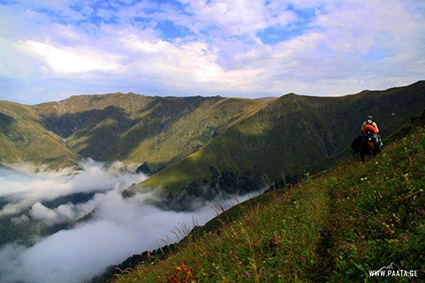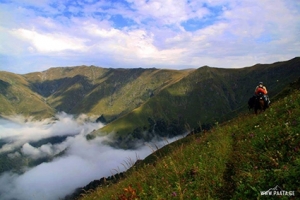New Project to Assist Georgia’s Environmental Protection
An environmental project worth 2 million Lari has been launched in Georgia to establish a national system of environmental monitoring, data analysis and reporting.
On July 21, ecological and environmental experts, along with local authorities, met to discuss a new three-year strategy.
Georgia, as part of the Caucasus eco-region, is considered one of the 25 globally significant ‘biodiversity hotspots’, based on the richness of species and the significant level of endemism recorded.
This new data collecting strategy will help the country to gather all environmental records in one space, available for public consumption.
The project will establish a coordinated system of environmental data and information management in Georgia. It will promote cooperation between the different ministries to address environmental issues effectively and train technical and managerial staff in monitoring and data analysis.
According to the fourth National Report to the United Nations Convention on Georgia’s Biological Diversity, due to poor and ineffective tools for data collection, storage and analysis the identification of actual changes in species and habitat conditions has become quite difficult in this area.
“Our goal is to create a unified system of data, where all important information, including legal frameworks about environmental issues will be collected. As a benefit of the project, Georgia will make its contribution to achieving global environmental goals, as well as create unified data bases and methodology,” head of the UNDP’s Energy and Environmental Protection program Nino Antidze said.
The Deputy Head of UNDP in Georgia, Shombi Sharp, attended the meeting and highlighted that the initiative helps Georgia to improve environmental monitoring, data analysis and reporting under the three Rio Conventions: biodiversity conservation, climate change, and desertification.
He also emphasized that Georgia has made significant achievements in the development and improvement of protected areas, but construction of the hydroelectric plants and dams are still sensitive issues.
“Construction of the hydro power plants near urban areas should be considered carefully by the Government. It affects local people’s lives, as well as the environment and in this situation, careful planning and sufficient consideration of ecological aspects are essential,” Sharp said.
The Rio Convention includes three conventions on Biodiversity, Climate Change and Desertification which were agreed at the Earth Summit held in Rio de Janeiro in 1992.
Georgia joined the Convention on Biological Diversity (CBD) in 1994 and thus committed itself to the Convention’s three objectives: the conservation of biological diversity, the sustainable use of its components and the fair and equitable sharing of benefits arising from the utilization of natural resources.
The project is being implemented by the Ministry of Environment Protection and Natural Resources of Georgia and is funded by the Global Environmental Facility (GEF), UNDP and Government of Georgia.
Tamar Svanidze












